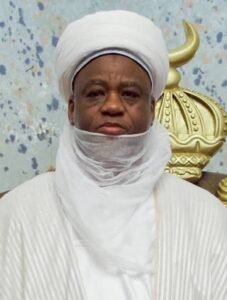Muslim lives matter; No ongoing slaughter of thousands of Christians in Nigeria — Onanuga tells US Secretary of State, Marco Rubio

A presidential aide has pushed back against social-media claims that “thousands of Christians” are being killed in Nigeria, saying the depiction is exaggerated and urging U.S. military support to tackle violent extremists instead of labelling the country as a “nation of particular concern.”
Bayo Onanuga, a senior aide to the presidency, wrote on X (formerly Twitter) that “Muslim lives matter too,” and described reports of a large-scale, religion-targeted slaughter of Christians in Nigeria as a “gross exaggeration of the Nigerian situation.”
In his post, Onanuga said the reality on the ground is a pattern of “sporadic attacks on some villages by bandits and terrorists” that are “religiously insensitive,” noting that “Christians, Muslims, churches and mosques are attacked randomly.” He urged the United States to prioritise military support to help Nigeria fight violent extremists in affected states rather than taking actions such as designating Nigeria as a “nation of particular concern.”
Onanuga’s message was directed at a social-media thread alleging mass killings of Christians in the country. The thread included strong language calling the violence “tragic and unacceptable” and saying the United States “stands ready, willing, and able to act.” Onanuga responded by stressing that sensational claims risk misrepresenting the complex security challenges Nigeria faces.
The aide’s intervention adds to an increasingly heated public debate over how incidents of communal violence, banditry and terrorism are characterised internationally and what forms of foreign assistance are appropriate. Onanuga’s post reflects the government’s long-standing position that insecurity in Nigeria is driven by a mix of criminal banditry, terrorist activity and communal tensions, rather than a single, centrally coordinated campaign targeting one religion.
Onanuga—who posts from the handle @aonanuga1956—called for focused military and security cooperation to confront violent groups operating in certain states, arguing this would be more constructive than international designations or highly charged rhetoric.
No response from the White House or U.S. officials to Onanuga’s tweet was publicly available at the time of publication. Representatives of affected communities and independent analysts continue to call for careful, evidence-based reporting and proportionate policy responses as Nigeria grapples with multiple security threats across different regions.






